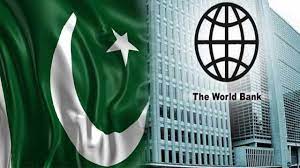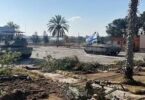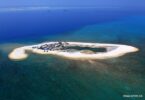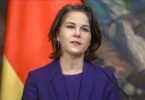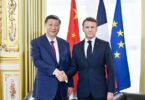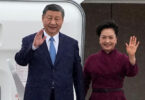The World Bank has recently released a report with shocking revelations and eye-opening remarks pushing the entire Pakistani nation to deep anxiety and fears about the economic outlook of the country as well as the future of their coming generation. The World Bank has noted that the poverty rate surges to 39.4 % with almost a 5% increase on a year-on-year basis, posing equal challenges to the survival of the South Asian economy together with its over 240 million masses.
This means that almost 95 million people out of 240 million nation are embattled with poverty, with around 12.5 million already pushed below the poverty line.
The World Bank categorically told the Pakistani leaders and Economists that their way of developing the country’s economy hasn’t been working well. There are several reasons for that failure including rising prices for essential commodities, oil, gas and electricity together with multiple other natural and manmade phenomena such as global warming, earthquakes, floods and droughts, that made the administrator’s job more difficult. Meanwhile, improper and insufficient healthcare and a stagnant education system are silent problems that gradually paralyzed the country over the past decades.
There have been some bitter facts for Pakistanis that are hard to believe such as Pakistan’s economic model failed in reducing poverty rather the system reversed the gains that were achieved in the past. It said that Pakistan’s per capita growth rate was less than half of the growth rate of the rest of the South Asian economies while in the head of human development, the Pakistani nation is equivalent to several Sub-Saharan African countries with the cost appropriately borne by the ill-nourished women, girls and infant health, high child mortality rates, improper education and illiteracy.
Realistically, Pakistani leaders and their economic advisors never came up with the sincere effort to set up the economic foundations of the country on an entirely professional, sustainable and long-term basis without compromising national interests and public well-being. Rather successive governments’ policy decisions have always been heavily influenced by the vested interests of political groups, military, national entities, business cartels and other pressure groups in the society, which led to adhocism, interval economic growth, persistent current account deficit, recurrent economic depletion, along with an all-time expanding poverty in the past years.
The World Bank report has exposed the policy’s flaws along with putting forth several suggestions to help Pakistan redefine its economic model and revive its growth. The Bank has proposed a big 10-year plan to fix the economy, along with a proposed increase in the tax base by collecting more taxes from agriculture and businesses. Meanwhile, the bank suggested the government a pivotal policy shift in service delivery and social protection system to reduce abnormally high child mortality and increase literacy rates especially girls’ education, a reduction in government expenditures along with investment in infrastructure and climate adaptation to benefit the common public.
In fact, the friends of Pakistan, global financial institutions, think tanks and rating agencies have time and again released their economic surveys and research studies regarding world economies highlighting ongoing trends along with the future forecasts that often play a beacon role in sensitizing the world leaders to evaluate their plans to avoid looming disasters. The same has happened in the case of Pakistan, however, Pakistani leaders resolutely pursued their politically motivated policies that neither grasped the economic objectives of the country nor could attract all-out support from the masses.
Thus a waste of resources, repeating failures, disapproval from the global community and criticism from the public are the outcomes of seven decades of the political and economic journey of our country. After, all the good suggestions and sane words, only a single phrase of advice has been left for Pakistani Strategists so far; watch your neighbours and copy them, so the persistent disgrace might spare you.

